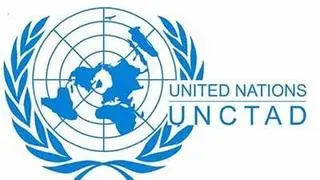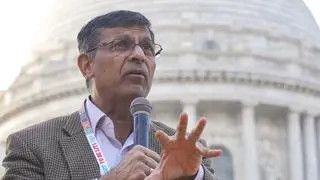India’s joint proposal with South Africa at the World Trade Organisation (WTO) for a temporary waiver of certain Trade Related Intellectual Property Rights (TRIPS) obligations to ensure smooth supply of medicines and vaccines during the Covid-19 pandemic has gained support from most developing countries while several developed members, including the US, Australia and the EU, opposed it.
“The TRIPS Council discussed India and South Africa’s proposal for three hours in a meeting on Friday without a consensus being reached between members on a waiver. The chair suggested that members should consult further on the matter and the TRIPS Council be reconvened as appropriate to discuss it,” a Geneva-based official told BusinessLine .
The TRIPS Council has time till December 31 this year (end of 90-day period after submission of the request for waiver) to adopt its report on the issue and pass it on for possible acceptance at the next Ministerial Conference. The United States, however, requested that this agenda item be suspended for further consultations, arguing that a weakened IP system will not help the situation.
Also read:IP waiver for Covid products: Civil society groups back India, South Africa proposal; write to WTO
Making a case for the proposed waiver, India pointed out at the meeting that new diagnostics, therapeutics and vaccines for Covid-19 were being developed across the world, but many countries were worried about making them available to the people fast while avoiding shortages and keeping the medical products affordable.
India also noted that there were several reports that highlighted the risk of IPRs acting as a hurdle to the timely supply of affordable medical products to patients, the official said. It also drew attention to the fact that some WTO members had actually made legal amendments in their patent laws to fast-track the process of issuing compulsory licenses for essential patented medicines to generic producers.
While the TRIPS agreement flexibilities did allow governments to issue compulsory licenses to generic producers for manufacture of patented items, both in the country or in another country (in case the compulsory license issuing country does not have domestic producers of generics), India said that many smaller countries were not able to fulfil the formalities required for it.
Urging WTO members to agree to the waiver, India said that it was time for members to take collective responsibility and put people’s lives before anything else.
A large number of developing nations and least developed countries (LDCs) including Kenya, Eswatini, and Tanzania on behalf of the African Group, Chad on behalf of the LDC members, Bangladesh, Sri Lanka, Pakistan, Venezuela, Honduras, Nepal, Nicaragua, Egypt, Indonesia, Argentina, Tunisia, Mali, Mauritius and Mozambique supported the proposal.
Many members, most of them developed nations such as the EU, US, Switzerland, Norway, Australia, Canada, Japan and the UK, joined by Brazil, rejected the test.
Others such as Nigeria, Philippines, Turkey, Ecuador, China, Thailand, Senegal, Jamaica, Colombia, Costa Rica, Chile and El Salvador welcomed the proposal but sought some clarifications.







Comments
Comments have to be in English, and in full sentences. They cannot be abusive or personal. Please abide by our community guidelines for posting your comments.
We have migrated to a new commenting platform. If you are already a registered user of TheHindu Businessline and logged in, you may continue to engage with our articles. If you do not have an account please register and login to post comments. Users can access their older comments by logging into their accounts on Vuukle.